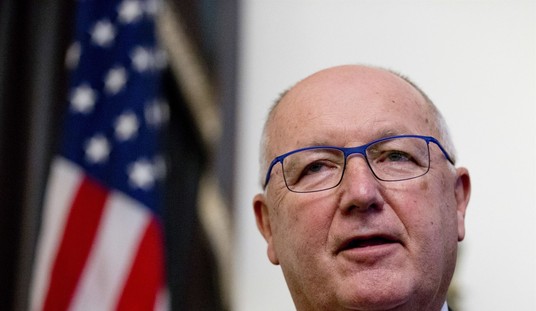
The political world will increasingly be watching the Supreme Court over the next two weeks, as the eleven cases left on the Court’s docket for its 2014 Term include a number of blockbusters. The Court, in the words of Justice Jackson, is not final because it is infallible; it is infallible because it is final. Nothing can stop the Court from doing whatever it wants. That said, it does operate under some self-imposed institutional constraints, and one of those is that it tries to follow its own traditions in – among other things – how and when it issues opinions and who writes them.
In light of that, the Court’s calendar and the statistics collected by SCOTUSBlog can help us form some informed speculation about when the remaining opinions are coming, and who is writing the majority opinion for the Court (in some cases, a plurality opinion, if five Justices are agreed on who should win the case but can’t agree on why, but for simplicity I’ll just refer here to majority opinions). Whether you can infer anything about the outcome from the author is another matter. As usual with projections about the Court, none of this is any kind of guarantee.
First, timing. The Court almost always wraps up its Term for the year before July 4, and it almost always saves the biggest, most controversial opinions for the final day or two of the Term, among other things because the Justices are most likely in those cases to be continuously revising their opinions as they see drafts of each other’s writings. Typically near the end of the Term, the Court will hand down 2-5 decisions per day (on Thursday, it handed down six, which is a lot). The Court publicly plans to sit tomorrow (Monday the 22d) and Monday the 29th, and it has an internal conference Thursday the 25th, and tends near the end of the Term to hand down decisions on conference days, as it did this past Thursday. We’ll know more after tomorrow, but most likely given the number of cases left it will also add one more decision day Tuesday June 30, and possibly a final session to mop up (e.g., issuing orders about which cases on its docket that haven’t been argued should be sent back to lower courts in light of decisions in cases raising similar issues) on July 1. That’s guesswork, but the most likely date for the King v Burwell Obamacare subsidy case and the Obergefell v Hodges same-sex marriage case would be Tuesday the 30th.
So gird your loins accordingly.
As for the tea-leaf reading on who will write the majority opinions:
The Court is, as I said, bound by nothing, but it generally tends to (1) divide majority opinions evenly among the Justices, which these days means every Justice will write at least 7 but no more than 8 majorities this year and (2) have each Justice do one majority opinion per Justice per monthly sitting (the Court hears arguments over seven months). From the SCOTUSBlog stats, that tells us the following about the last 11 opinions:
1) Justice Kennedy will likely write the one remaining January case, on whether the Fair Housing Act allows disparate impact claims or requires proof of intentional discrimination. You never know with Kennedy, but he has tended to side more with the Court’s conservative bloc on racial issues.
2) Justice Scalia will likely write his 8th & final majority opinion of the Term in one of the two March cases – the Kimble v Marvel case over the duration of patents or the case on whether the EPA is requried to consider costs in air pollution regulations. Justice Kagan, who has already written majorities from February and April, will likely write her 7th & final in the other. Because the more senior Justices – for reasons explained below – tend to get the more interesting cases, it seems the likelier outcome that Scalia will have the EPA case, which seems like bad news for the EPA. But that’s a lot of variables and you never know.
3) Justice Thomas, who has also written already in every month of the Term and has released a bunch of opinions the last few weeks, is also probably done for the year at 7 majority opinions.
That leaves Justice Kennedy, who’s written just 4 so far, needing 2-3 more besides the FHA case, Chief Justice Roberts 2-3, Justices Ginsburg and Sotomayor 1-2 each and Justice Alito maybe 1 (he’s already at 7).
4) Four Justices (Kennedy, Roberts, Ginsburg, and Sotomayor) haven’t written opinions from the February sitting yet, and there’s 3 cases left – King v Burwell, the Arizona case that could decide whether nonpartisan redistricting commissions are constitutional, and City of LA v Patel on whether hotel guests have an expectation of privacy in hotel registries and, more broadly, whether you can challenge laws “facially” under the Fourth Amendment or whether only a person whose privacy was invaded by a particular search can raise such a challenge.
The way the Court divides opinions is that the most senior Justice on the majority side – which means the Chief Justice, but if he’s dissenting then the longest-serving Associate Justice in the majority, typically Scalia or Kennedy) – assigns who writes the opinion. A lot of considerations go into who gets assigned what, but in a high-profile case where the Court’s prestige is at stake and the Chief Justice is the swing vote – all potential considerations in King, bearing in mind that Justice Kennedy voted with the conservatives in the last Obamacare case – one would expect Roberts to write King regardless of its outcome, unless he is playing some deeper game (given the secrecy of the Court’s deliberations, you never know).
5) Six Justices could still write opinions from the April sitting – Kennedy, Roberts, Ginsburg, Sotomayor, Alito and Breyer – and there’s five cases to go – the gay marriage case (Obergefell v Hodges), the Oklahoma lethal injection case, a case on 5th Amendment takings of crops (raisins – actually a potentially interesting decision), a case on the standard for excessive force suits against prison guards by pretrial detainees (specifically, whether guards can be sued without proof they acted recklessly by Tasing a detainee), and a case on whether shotguns are covered by the Armed Career Criminal Act (which could decide whether parts of the statute are unconstitutionally vague). These are all big cases in their own way, but the last two are the lowest profile (the ACCA case is only of interest to the criminal defense bar).
Obviously, for reasons similar to why we would expect Chief Justice Roberts to write King, the logical inference is still that Justice Kennedy writes Obergefell, since he would be the most likely “swing” vote in that case (Roberts dissented in Windsor) and Kennedy wrote most of the Court’s prior same-sex marriage and gay rights opinions for the same reason.
What do we know about the outcomes? That’s a tougher question. Justice Kennedy has always sided with the supporters of same-sex marriage, but always seemed a bit hesitant to outright declare the traditional definition of marriage to be irrational; but Obergefell leaves him little room to dodge that question, especially with scores of litigants asking him to do so and vast numbers of briefs filed by a multitude of states and religious denominations begging him not to. Most people assume the Court in Obergefell will strike down every remaining marriage law that was on the books between 1789 and the 1990s, but how the opinion is written will still have a lot of impact.
King is a far harder case to handicap. Nicholas Bagley, one of the less hysterical of the suit’s critics, suggests that the Court’s opinion in Baker Botts LLP v Asarco LLC (a dispute over the meaning of attorneys’ fees language in the Bankruptcy Code) may have tipped the Court’s hand on theories of statutory interpretation in favor of the King plaintiffs. But that just underlines the point that, if King was a run of the mill case like Baker Botts and not a political lightning rod, the IRS would lose easily. What will be very interesting to watch, if the IRS actually does lose, is whether any of the four Democratic appointees side with the plaintiffs, a possibility for which it is clear that neither the Obama Administration nor anyone in the King commentariat has prepared. And the details of the opinion will matter – an underrated aspect of King is that the plaintiffs argue that if the IRS rule providing subsidies to federal exchange purchasers fall, the individual mandate falls in 37 states as well, as its requirements will not be met. And the Administration argued in the last Obamacare case that without the individual mandate, the guaranteed-issue and community-rating provisions of the statute are unworkable and should not apply either.
I wouldn’t even hazard a guess as to the other cases. Justice Kennedy is also likely to be the pivotal vote in the Oklahoma lethal injection case, which could do a lot to achieve a de facto ban on executions without admitting it is such. And there’s always the wild card possibility that, with the Term ending, one of the Justices could surprise us by announcing his or her retirement (there’s as yet no sign anyone’s leaning that way).
Buckle your seatbelts. Should be an interesting two weeks.
Standard disclaimer: my law firm is involved in scores of Supreme Court cases representing both parties and amici, including several discussed above. My views herein are my own and not those of the firm or its clients.













Join the conversation as a VIP Member